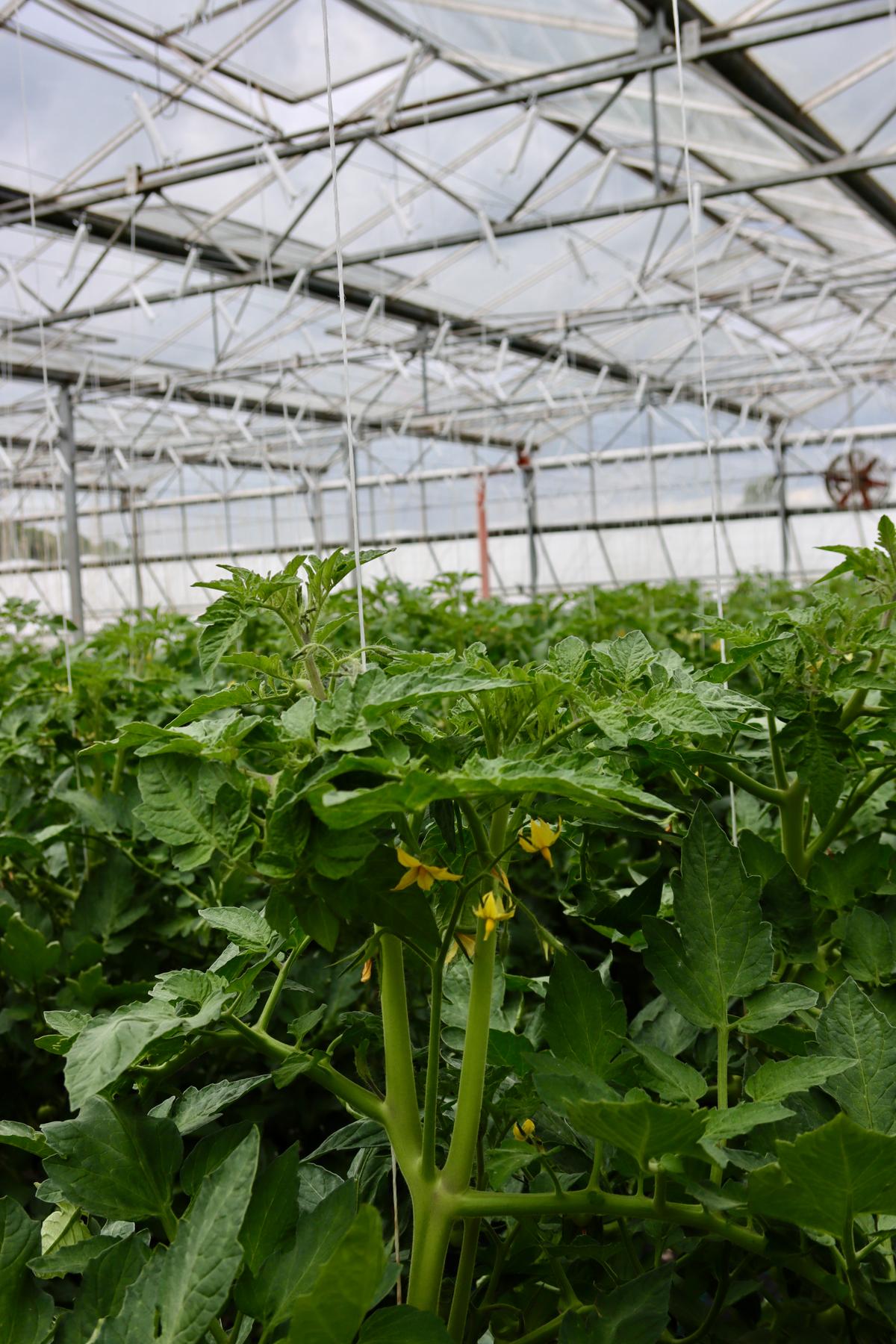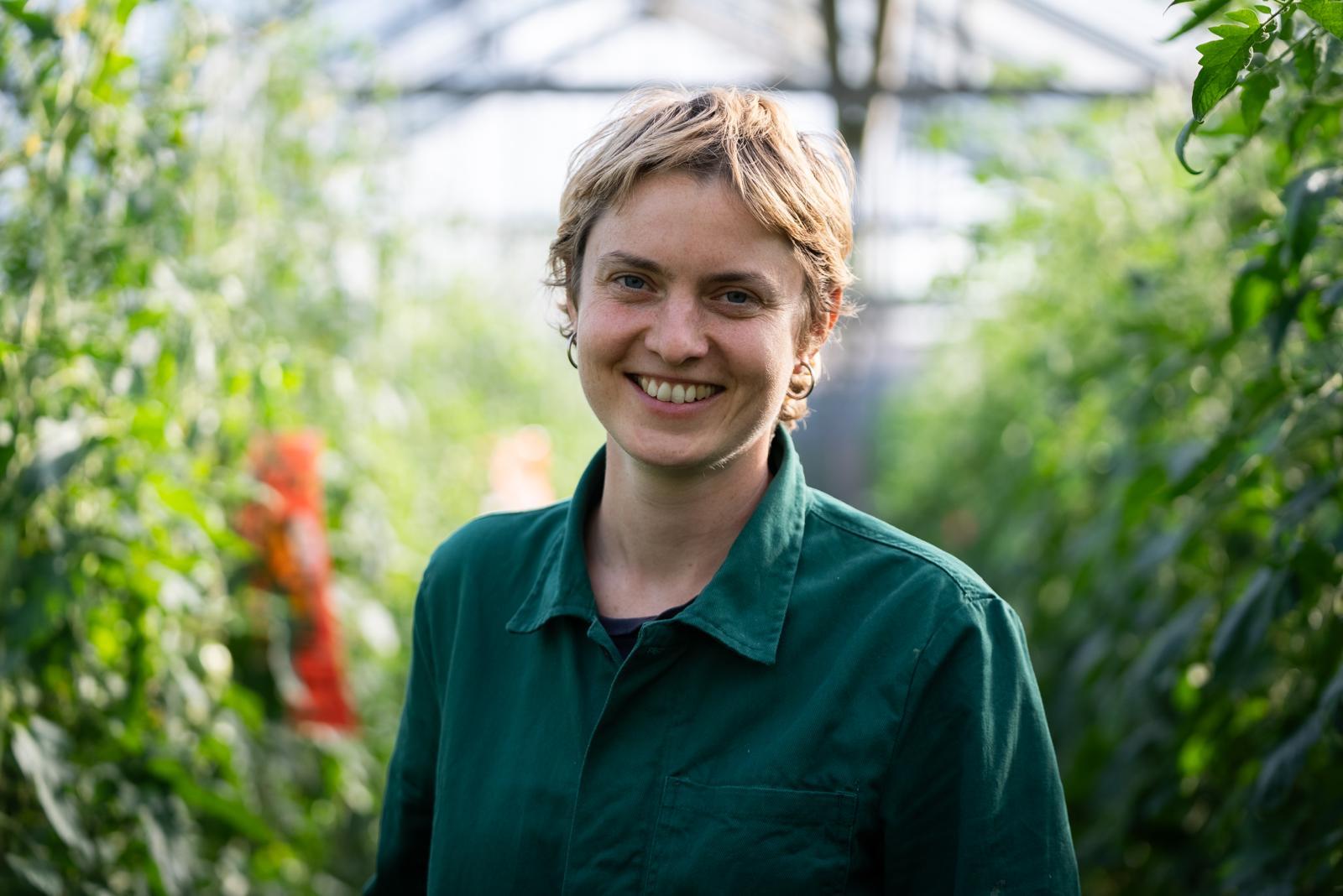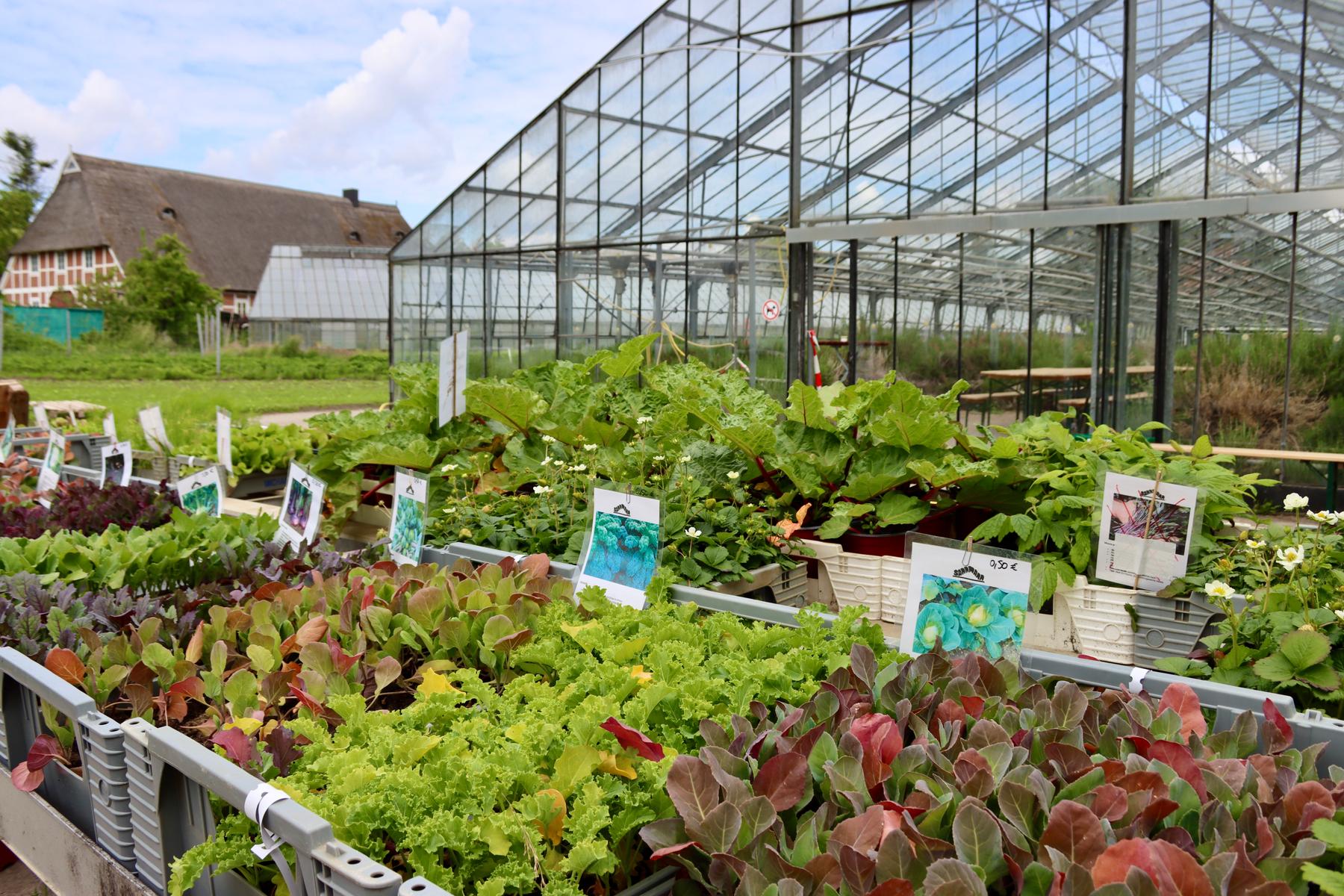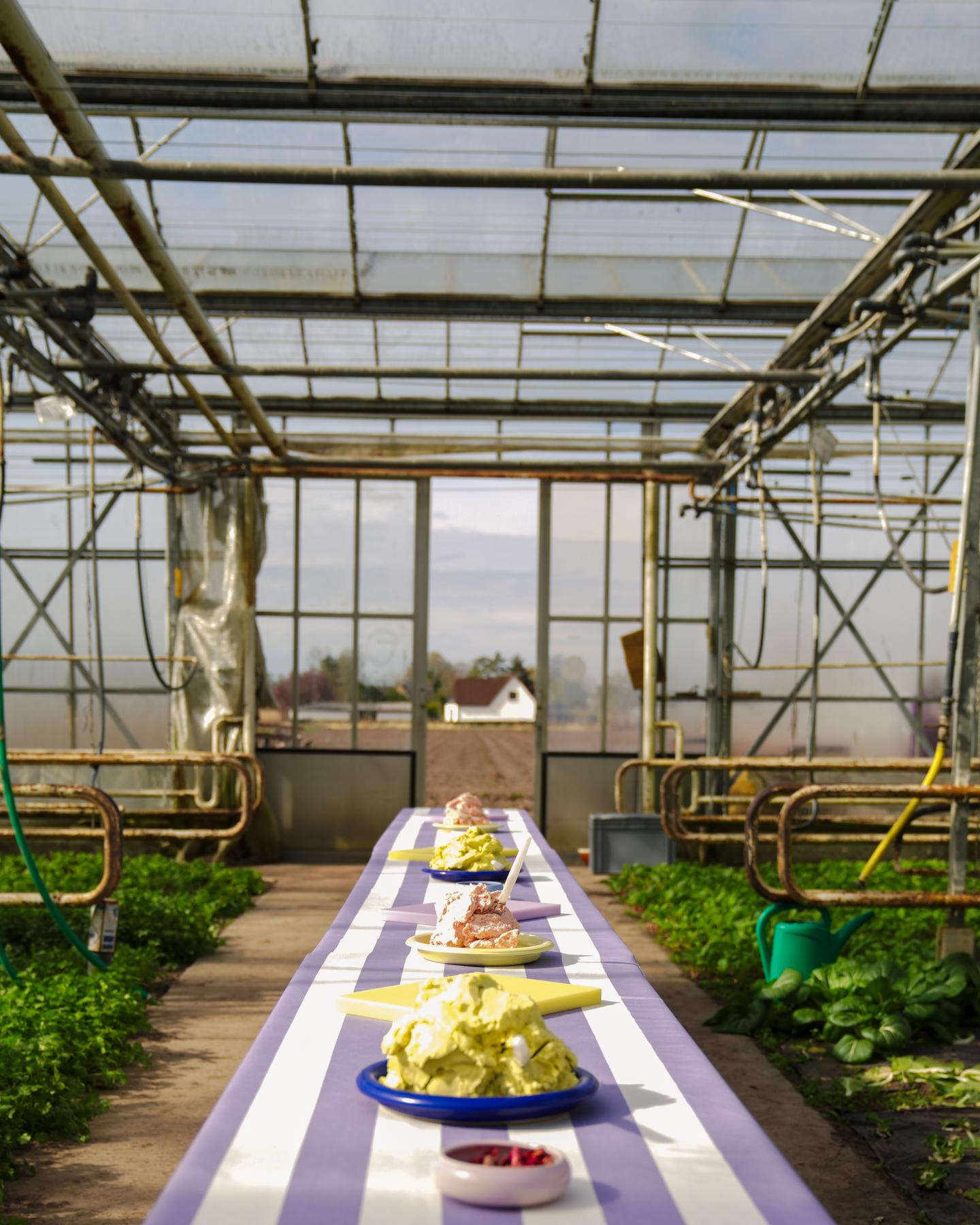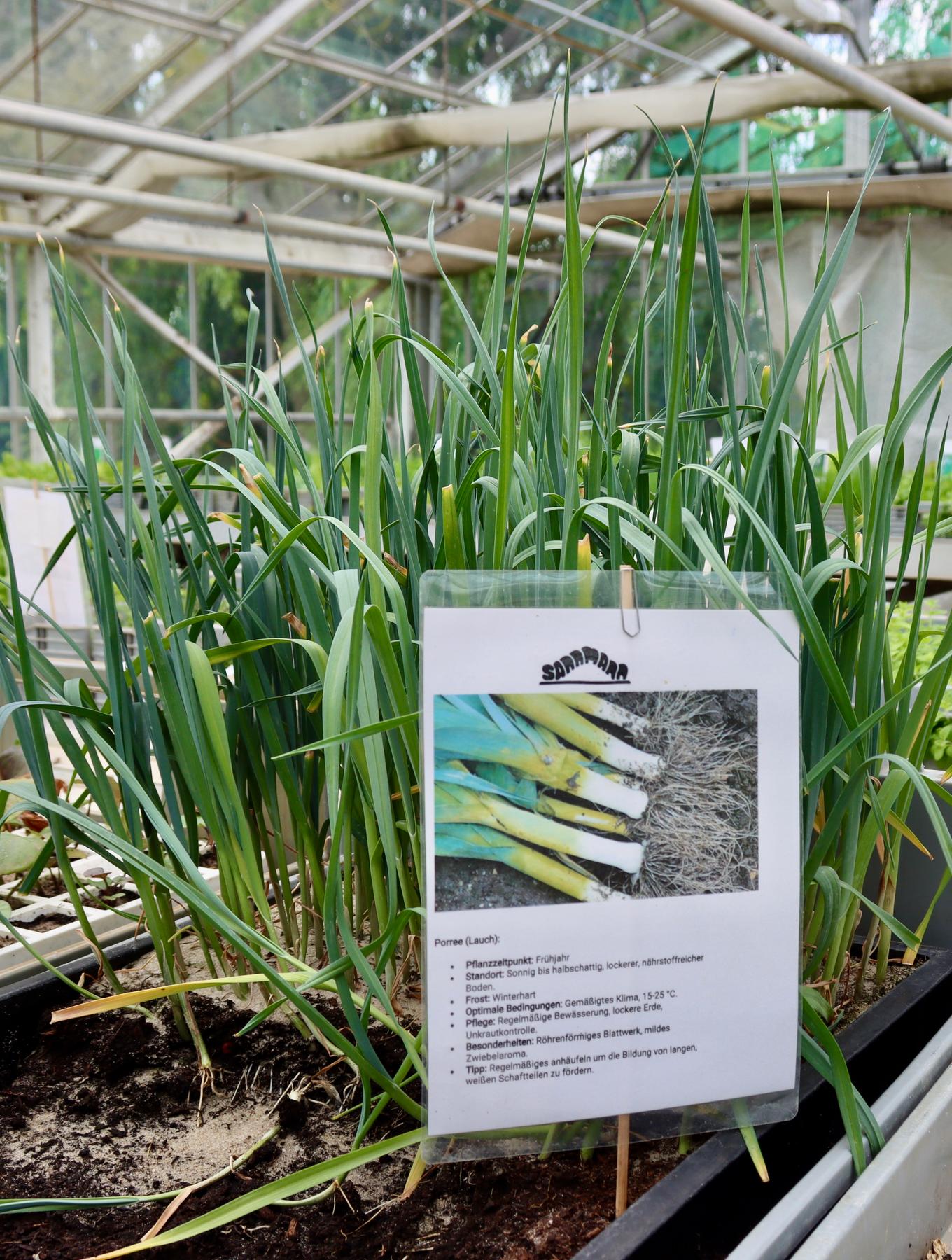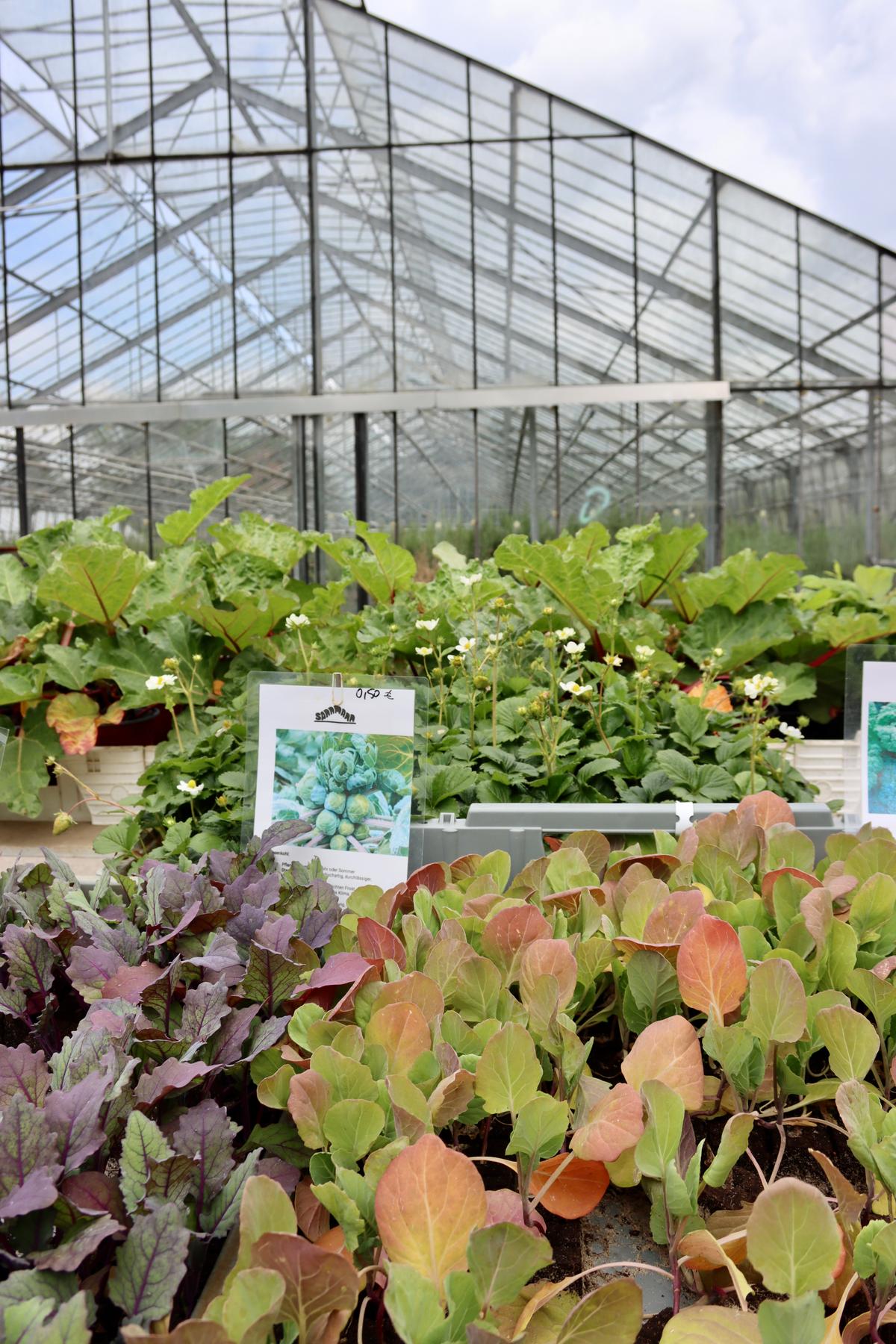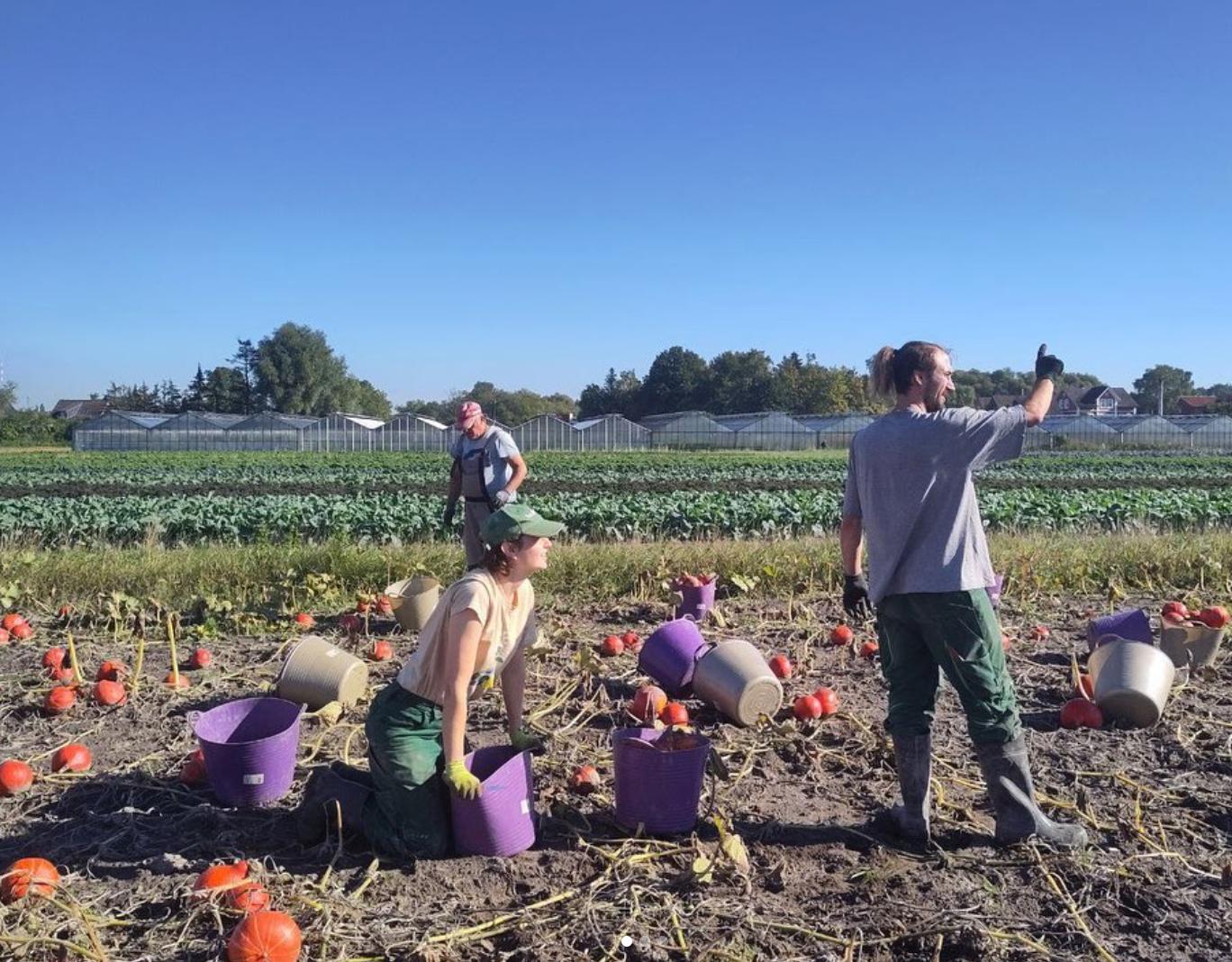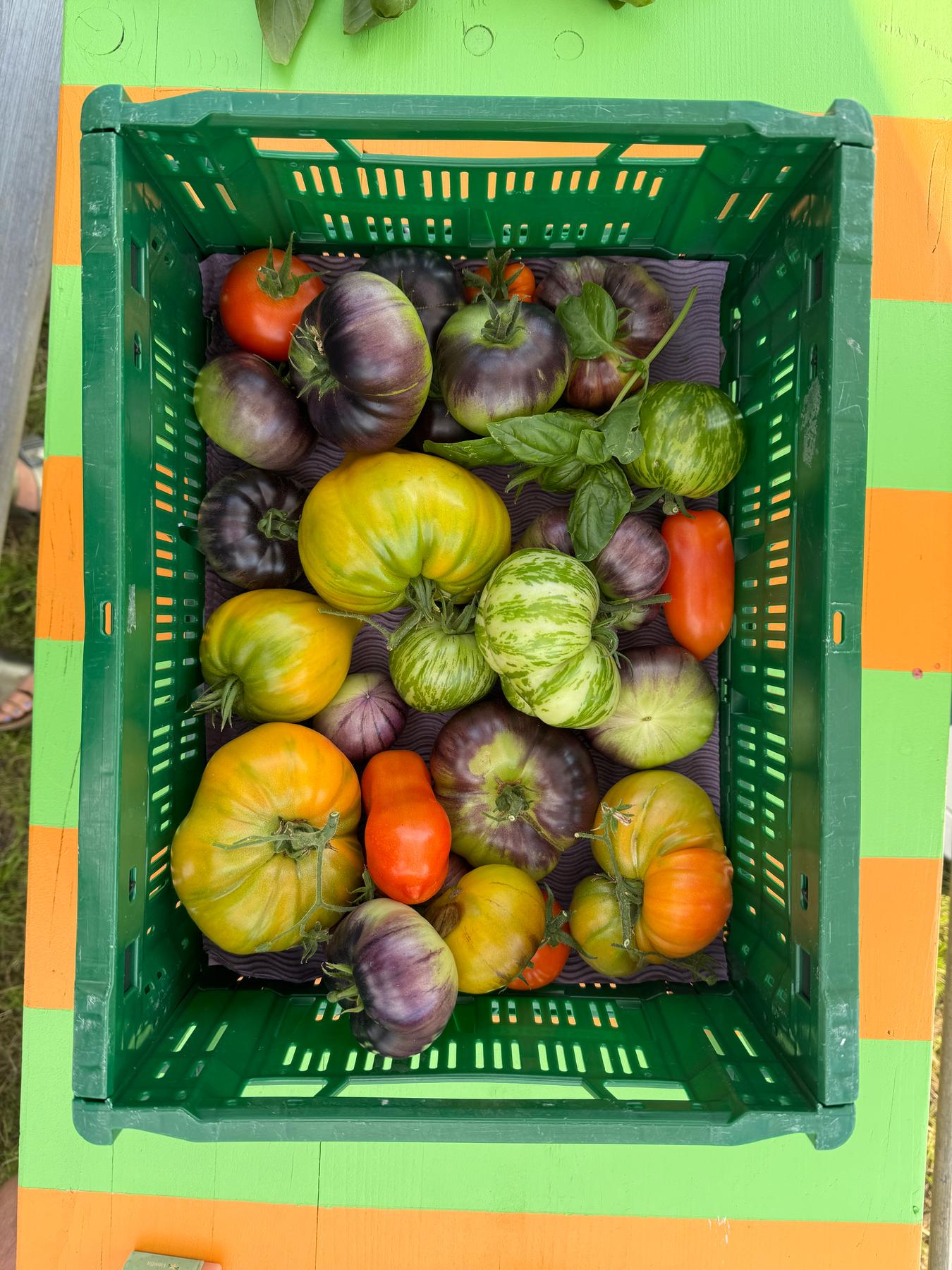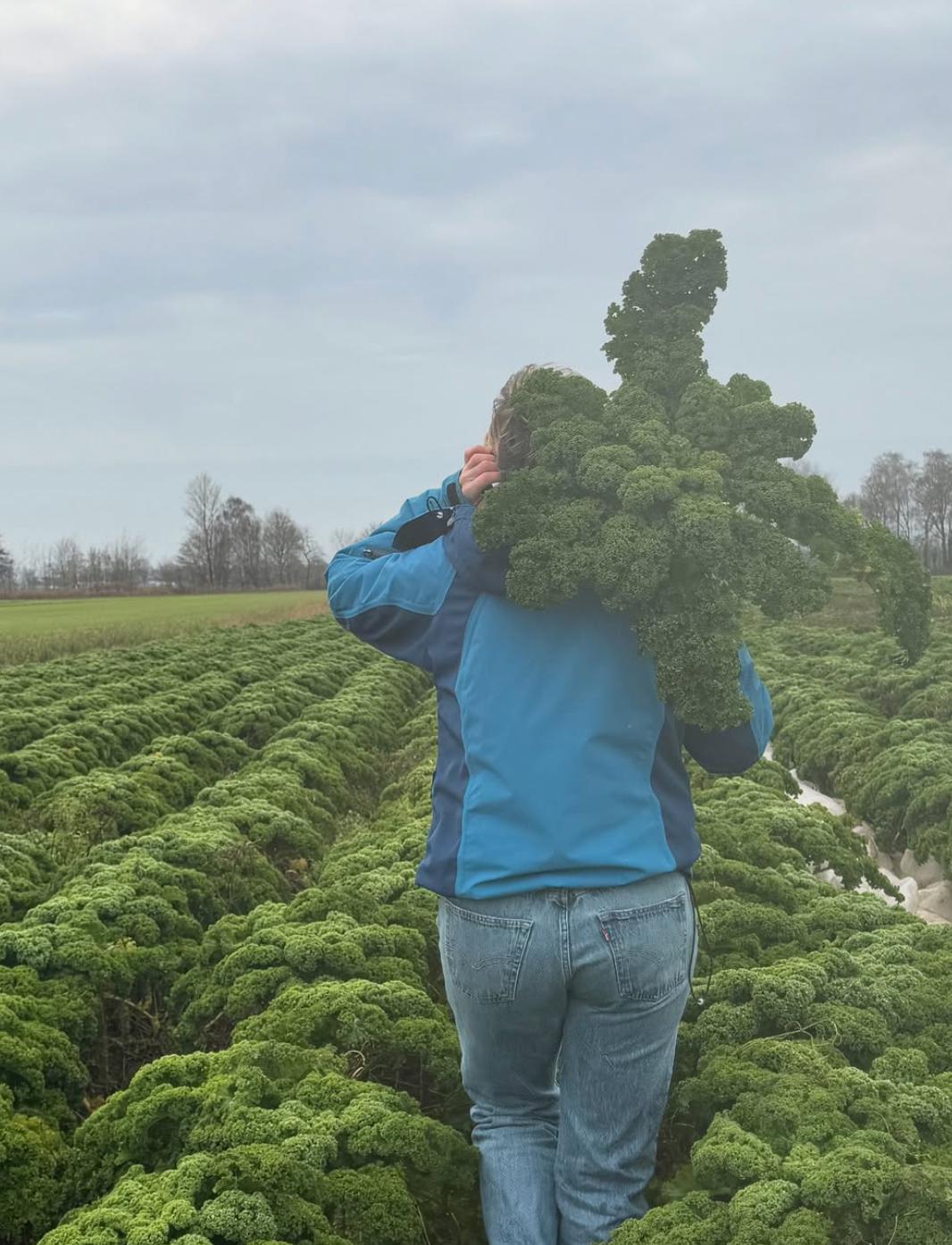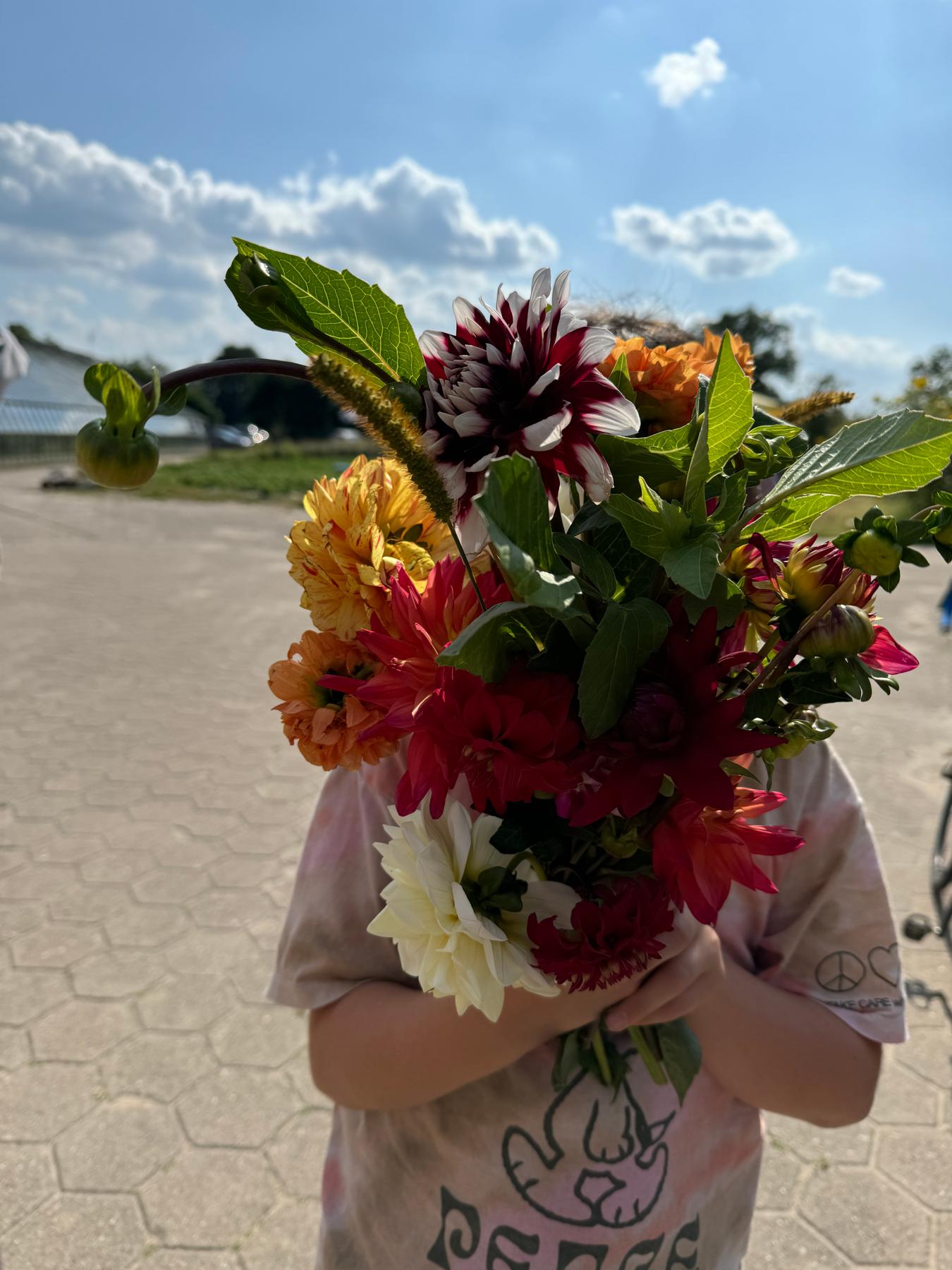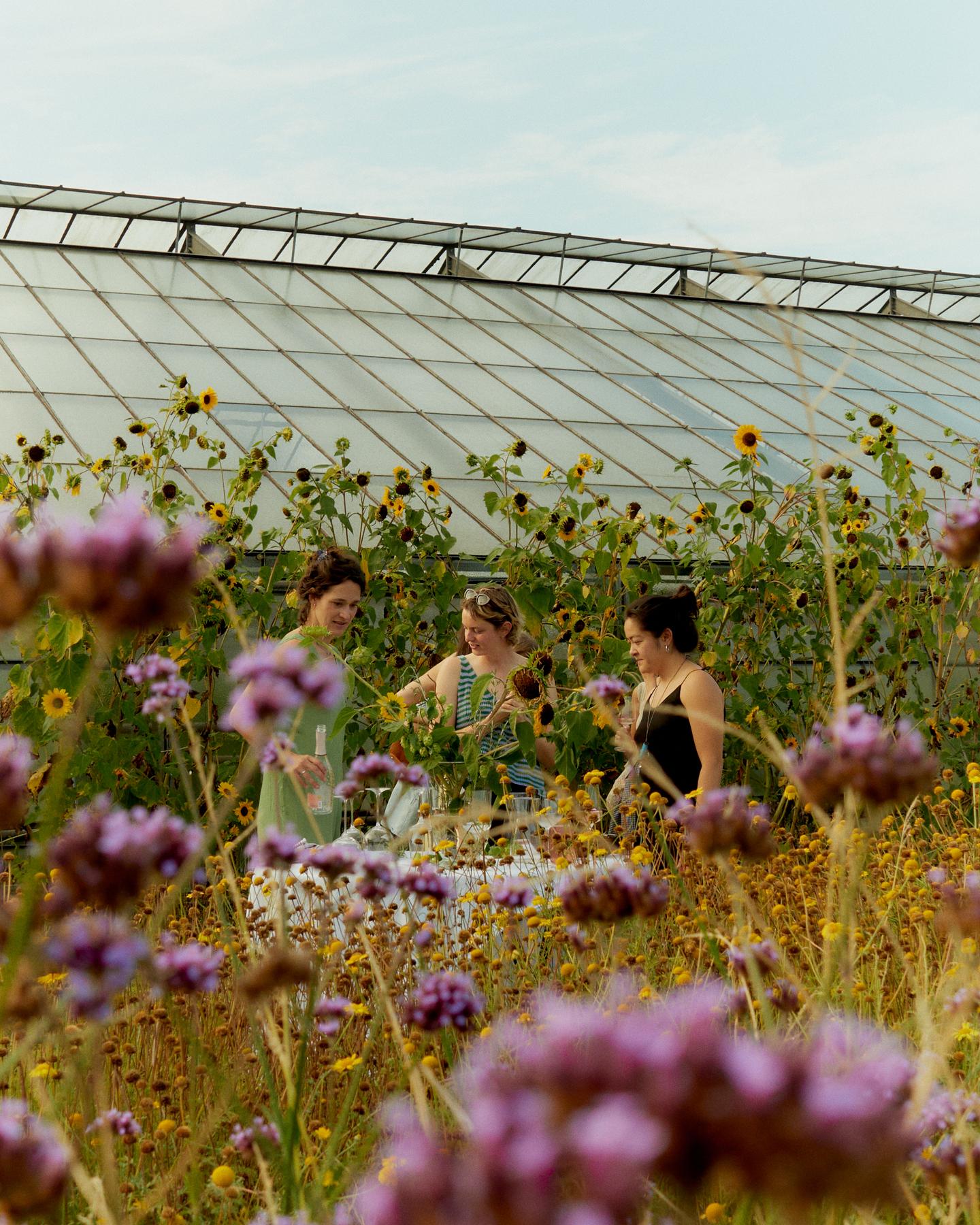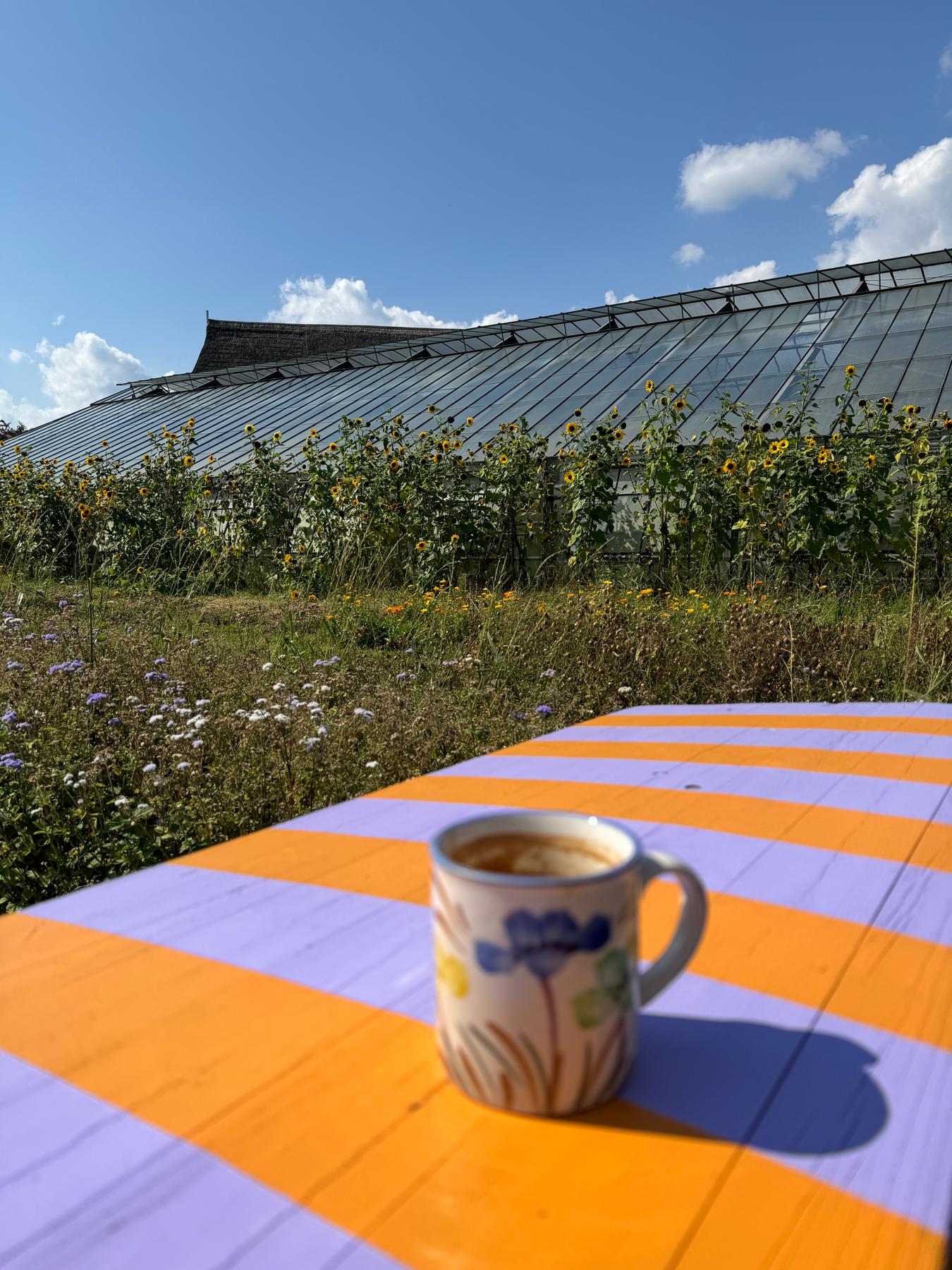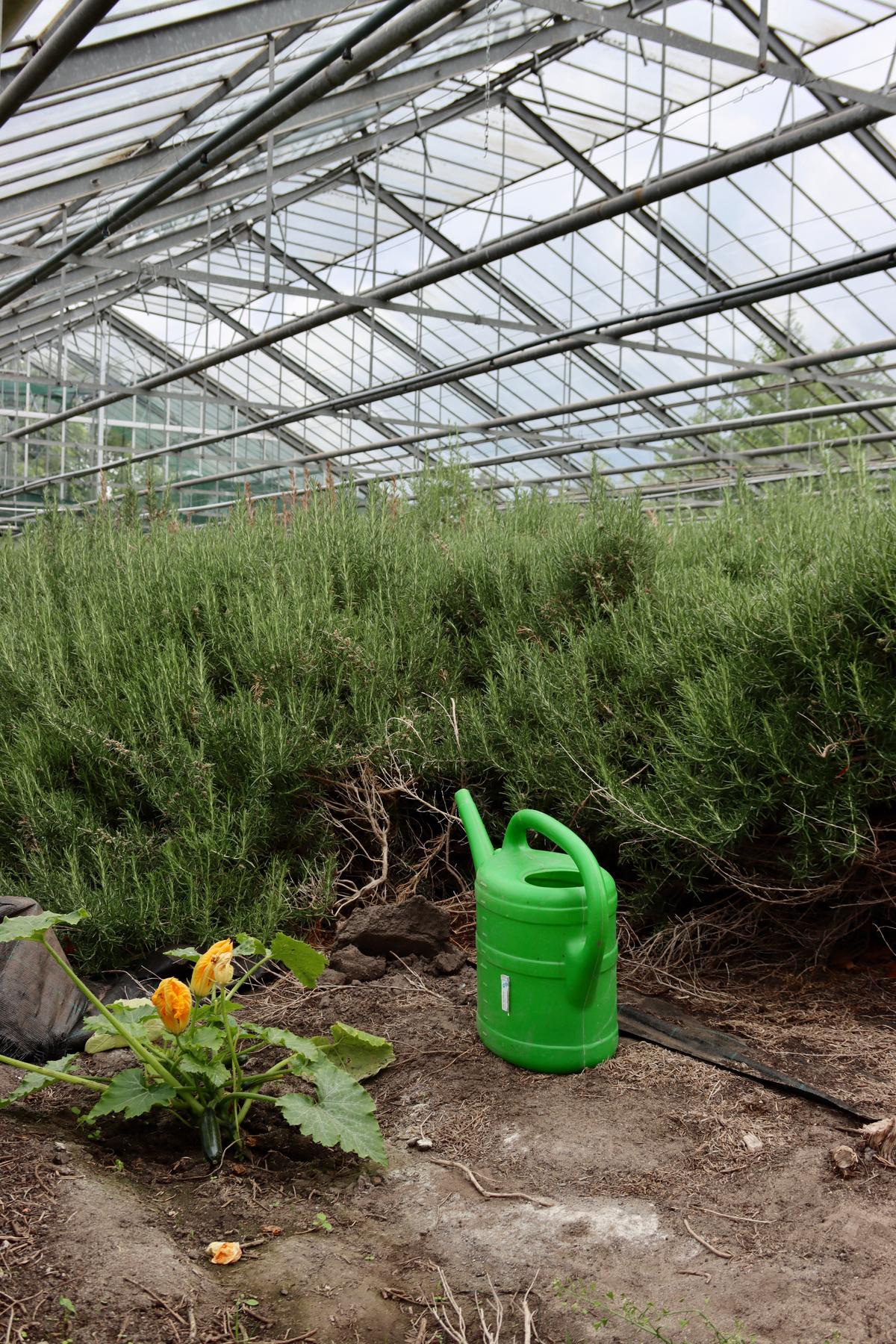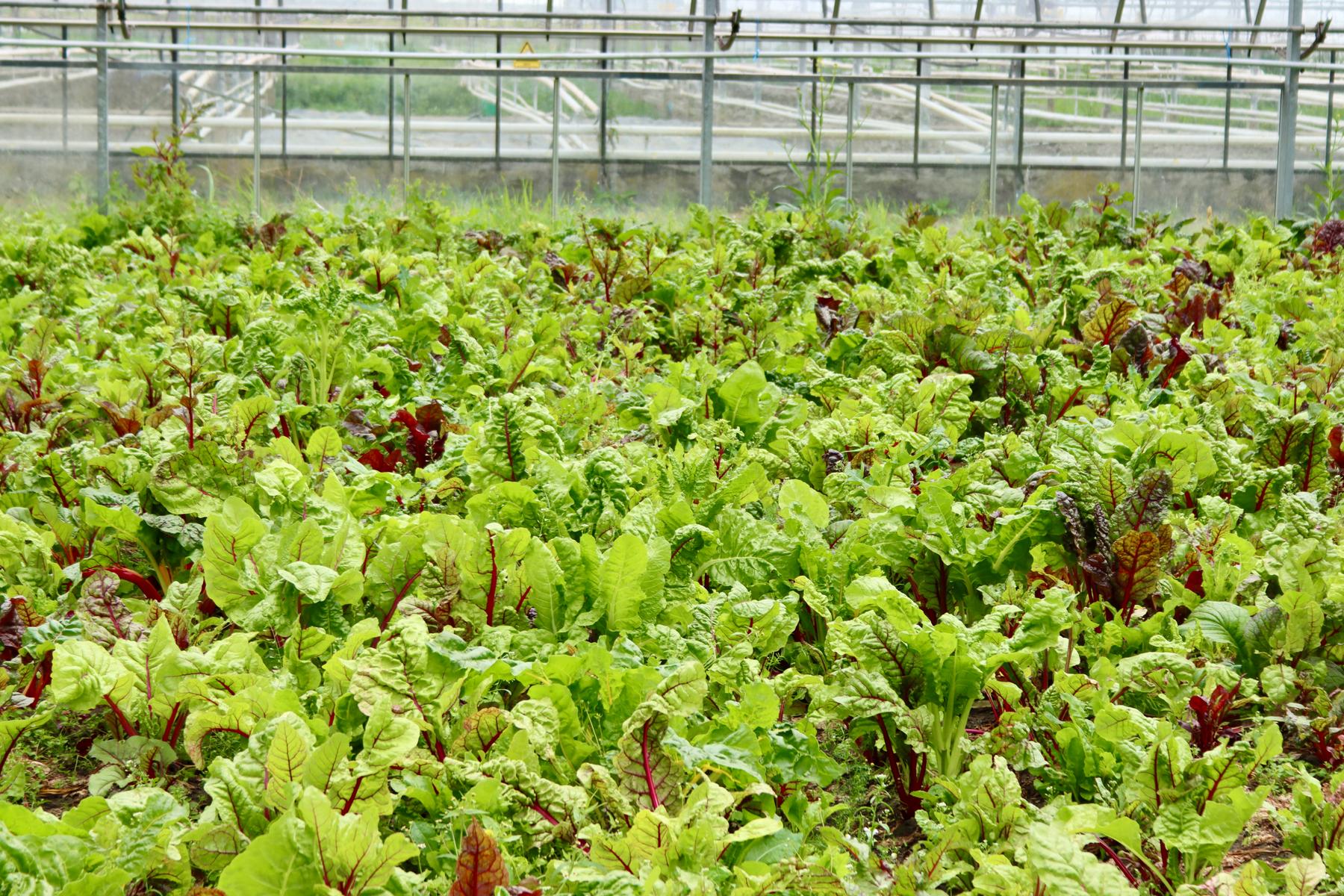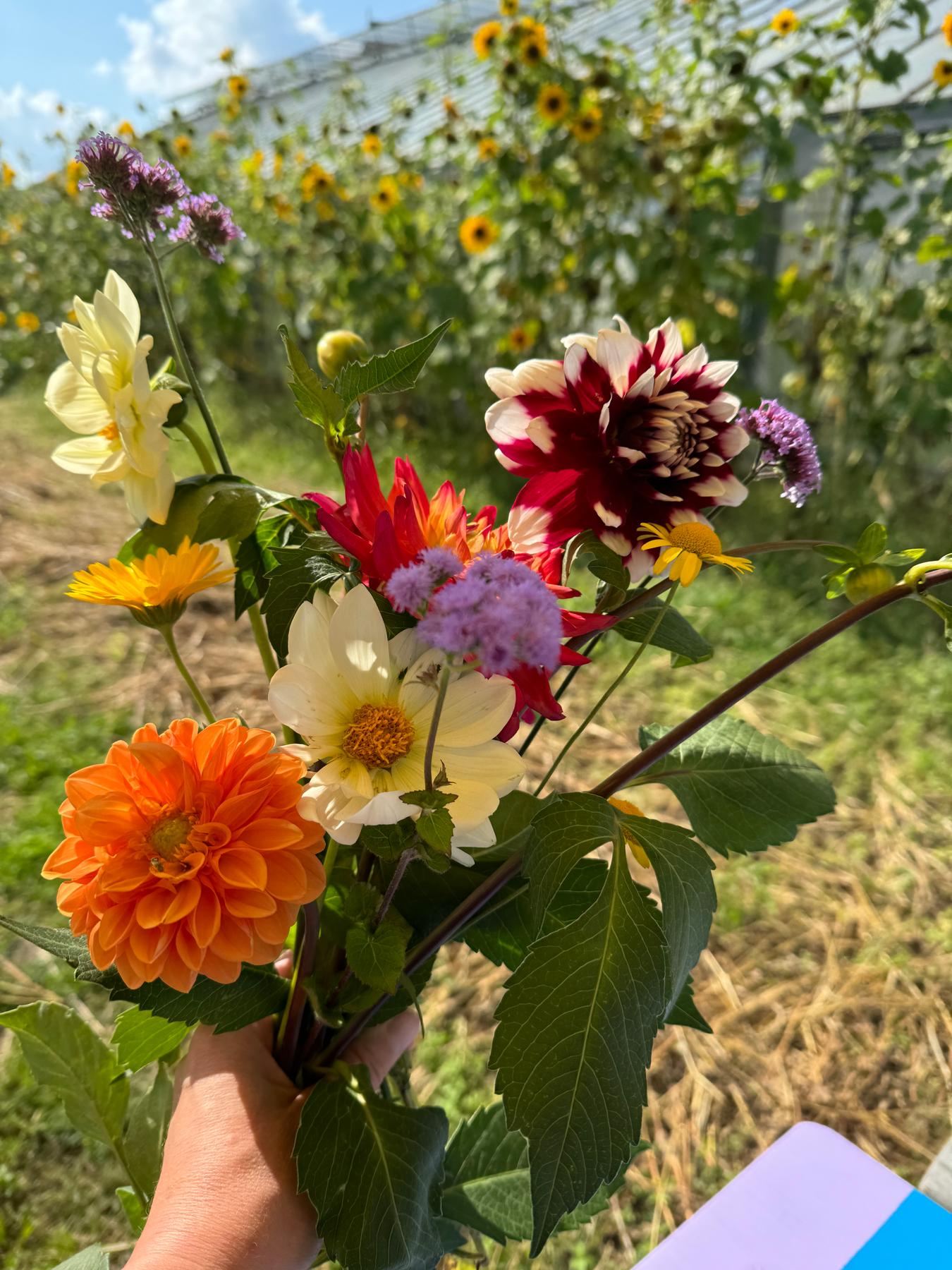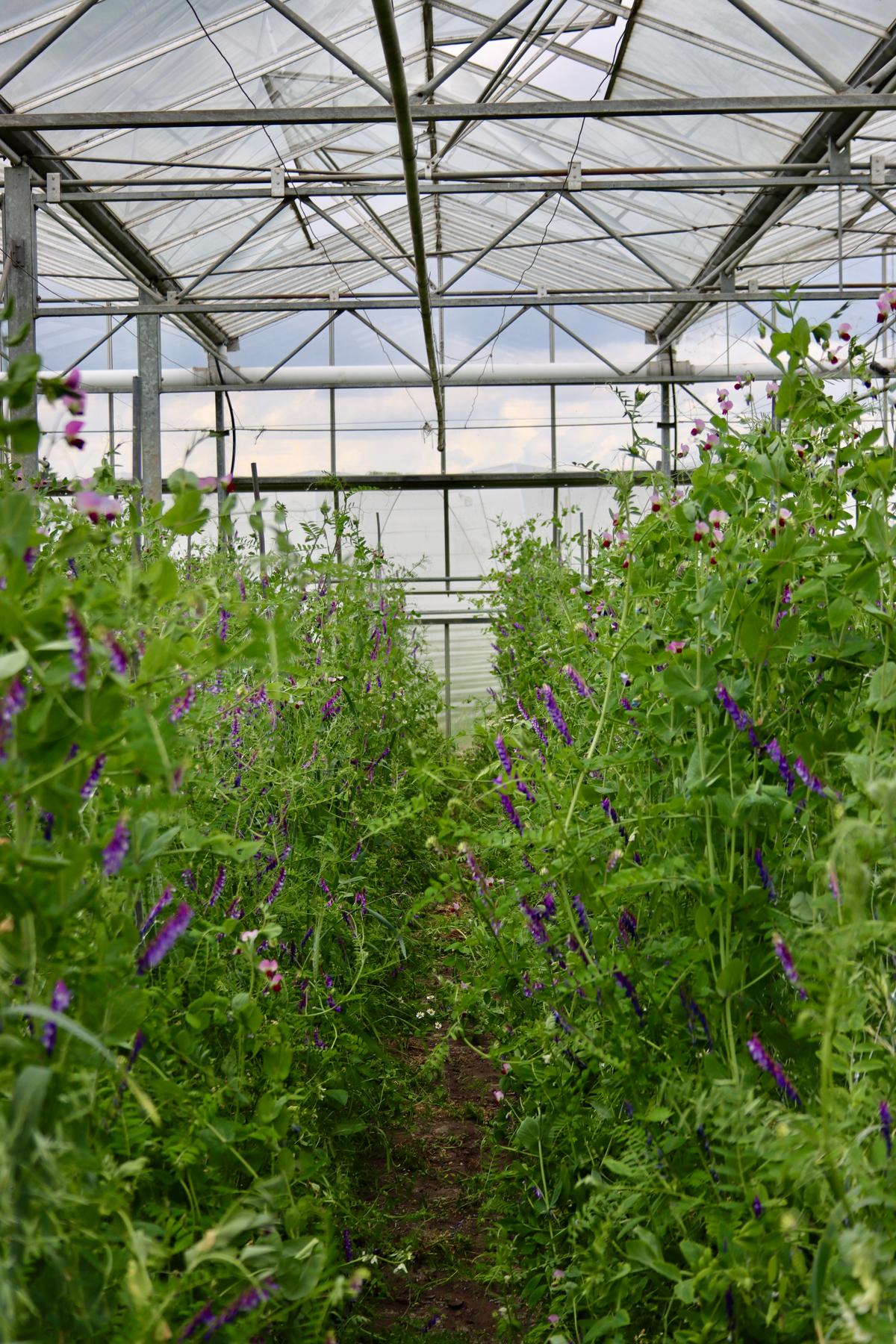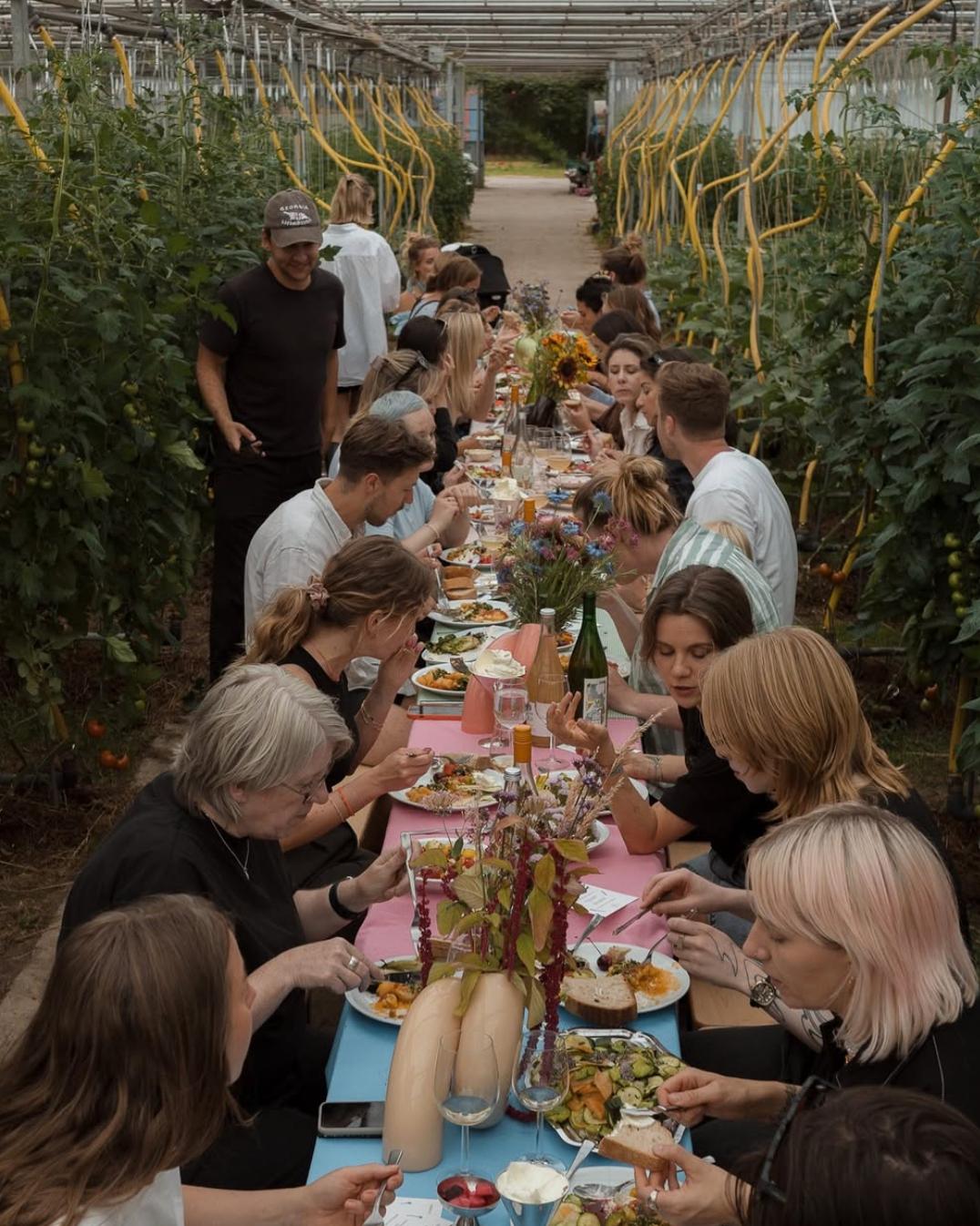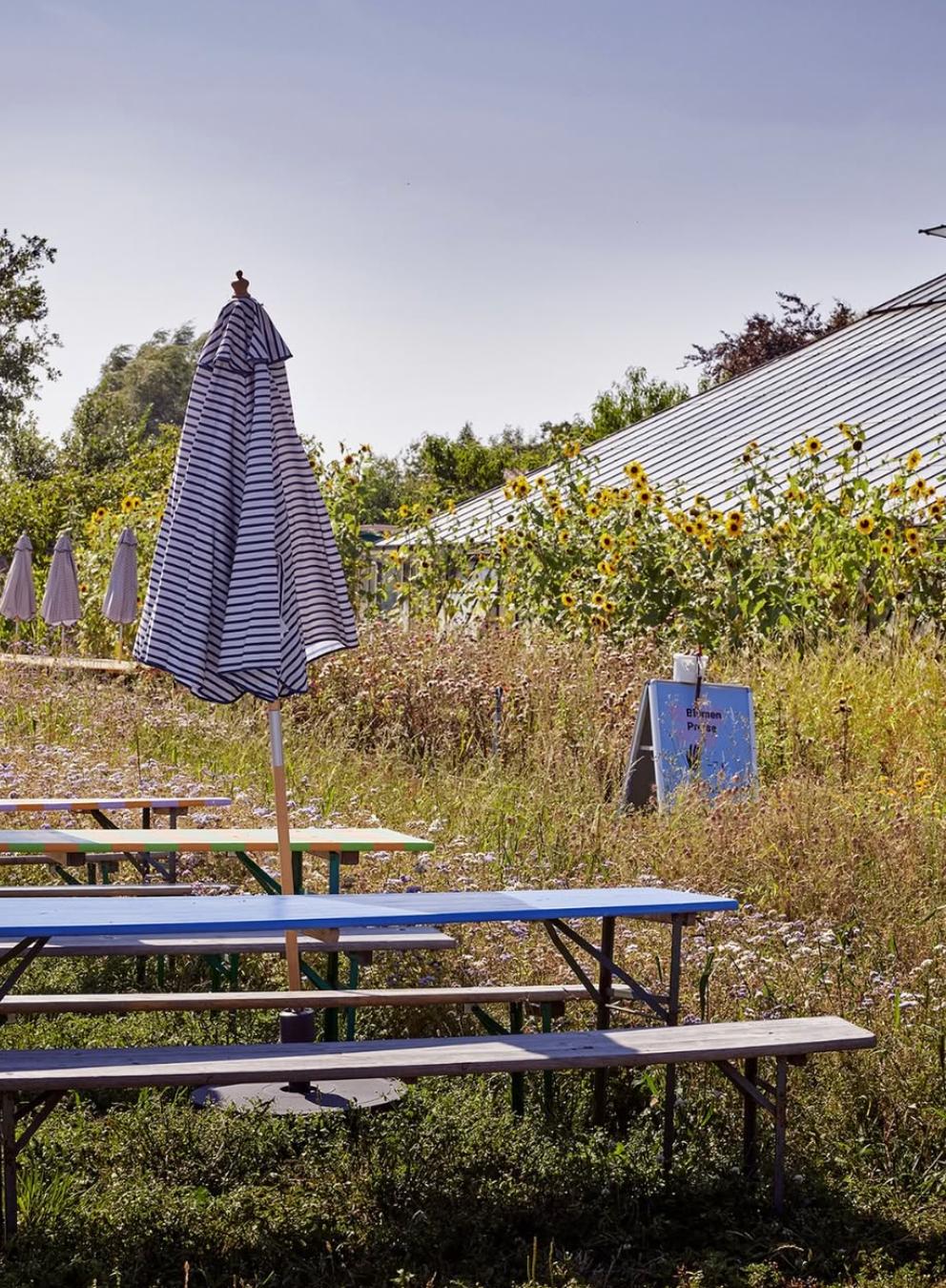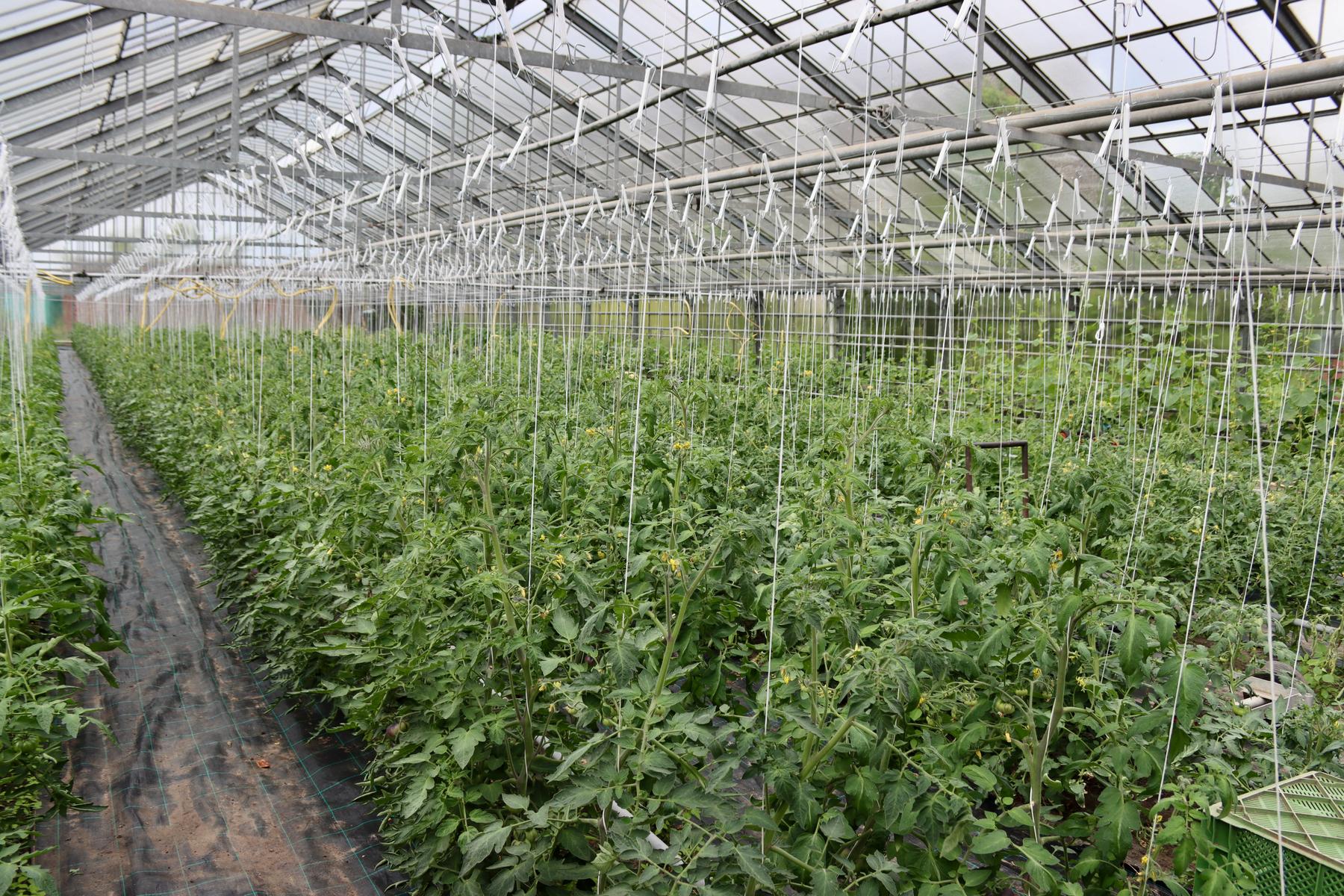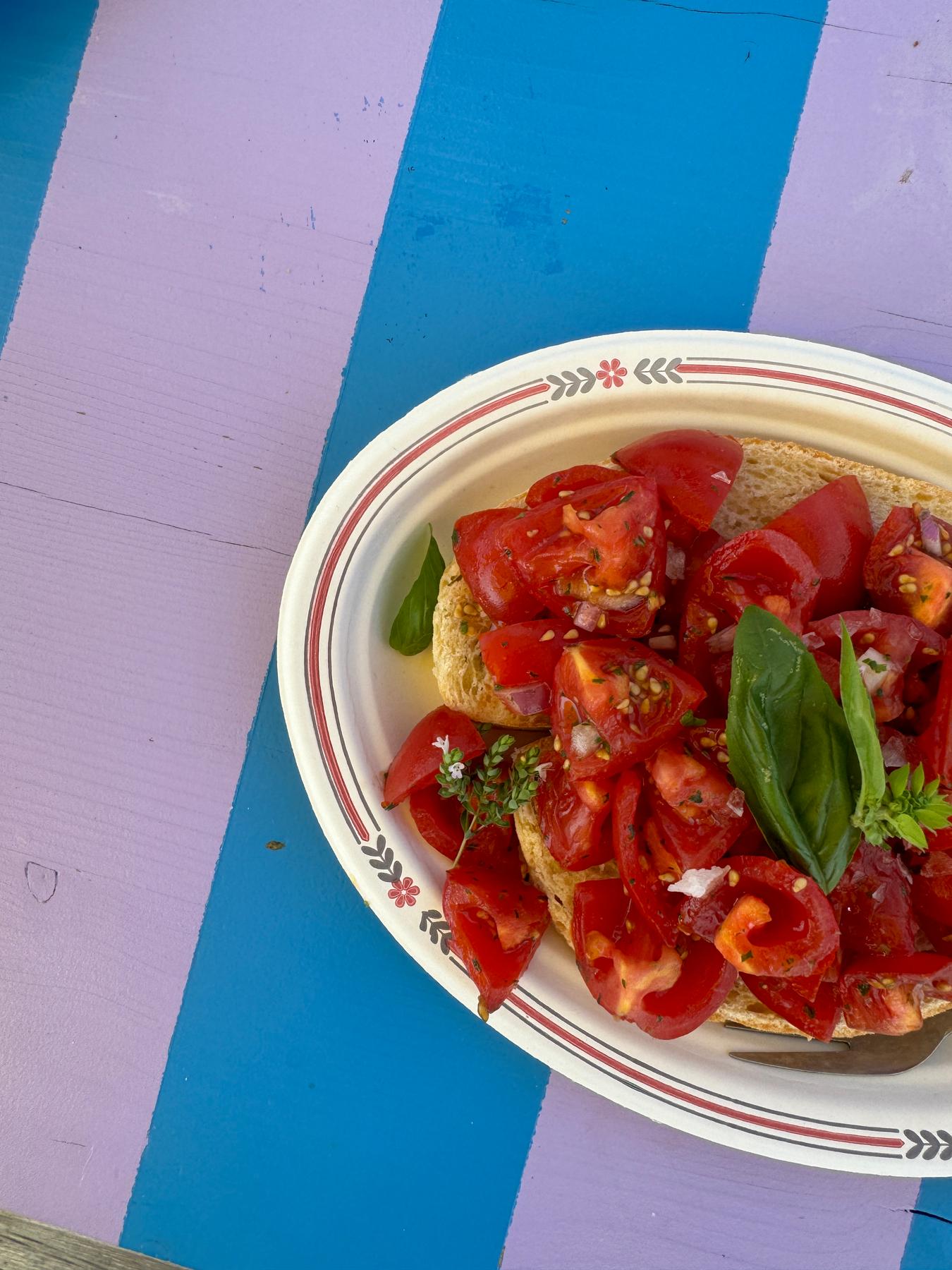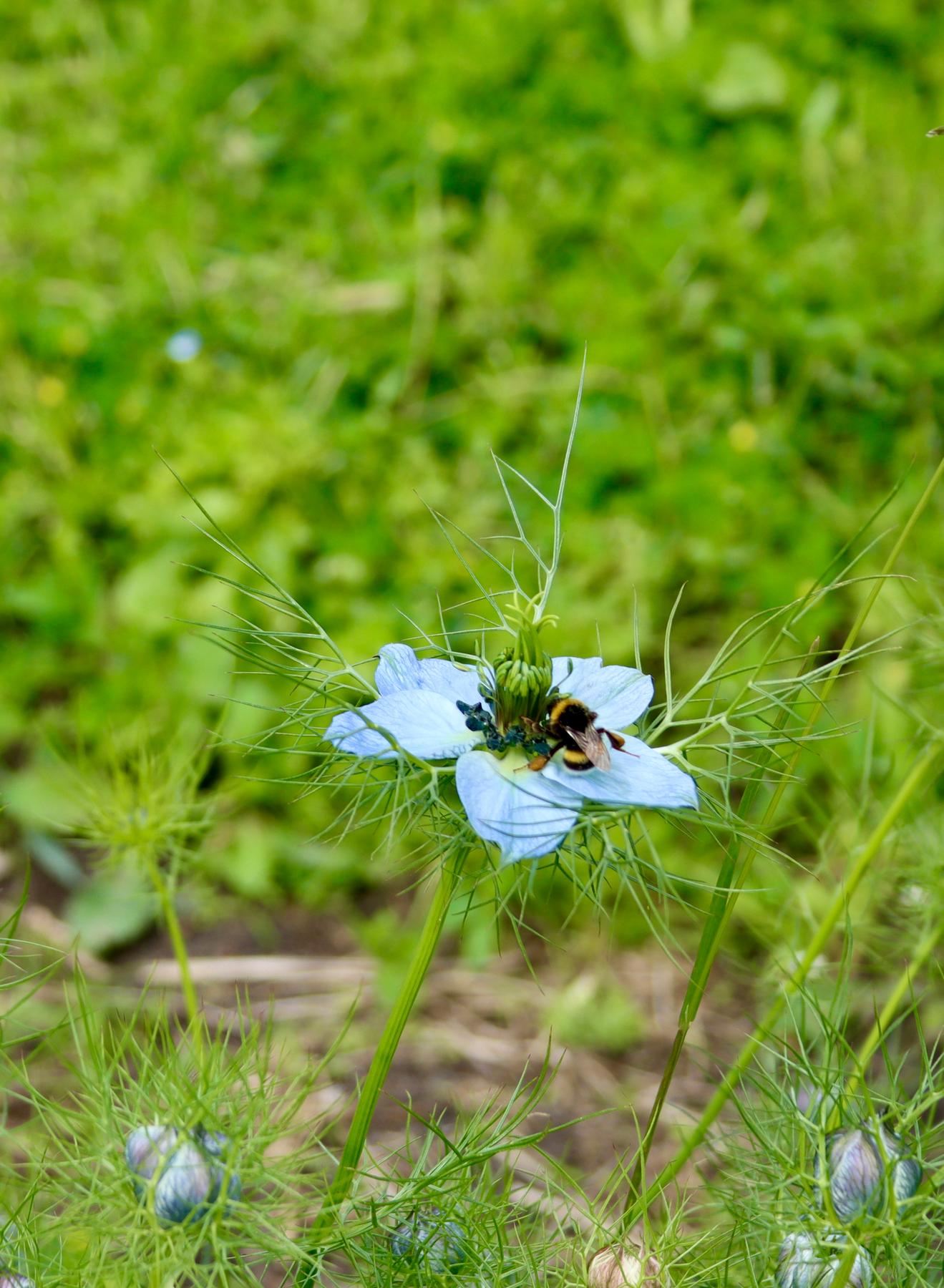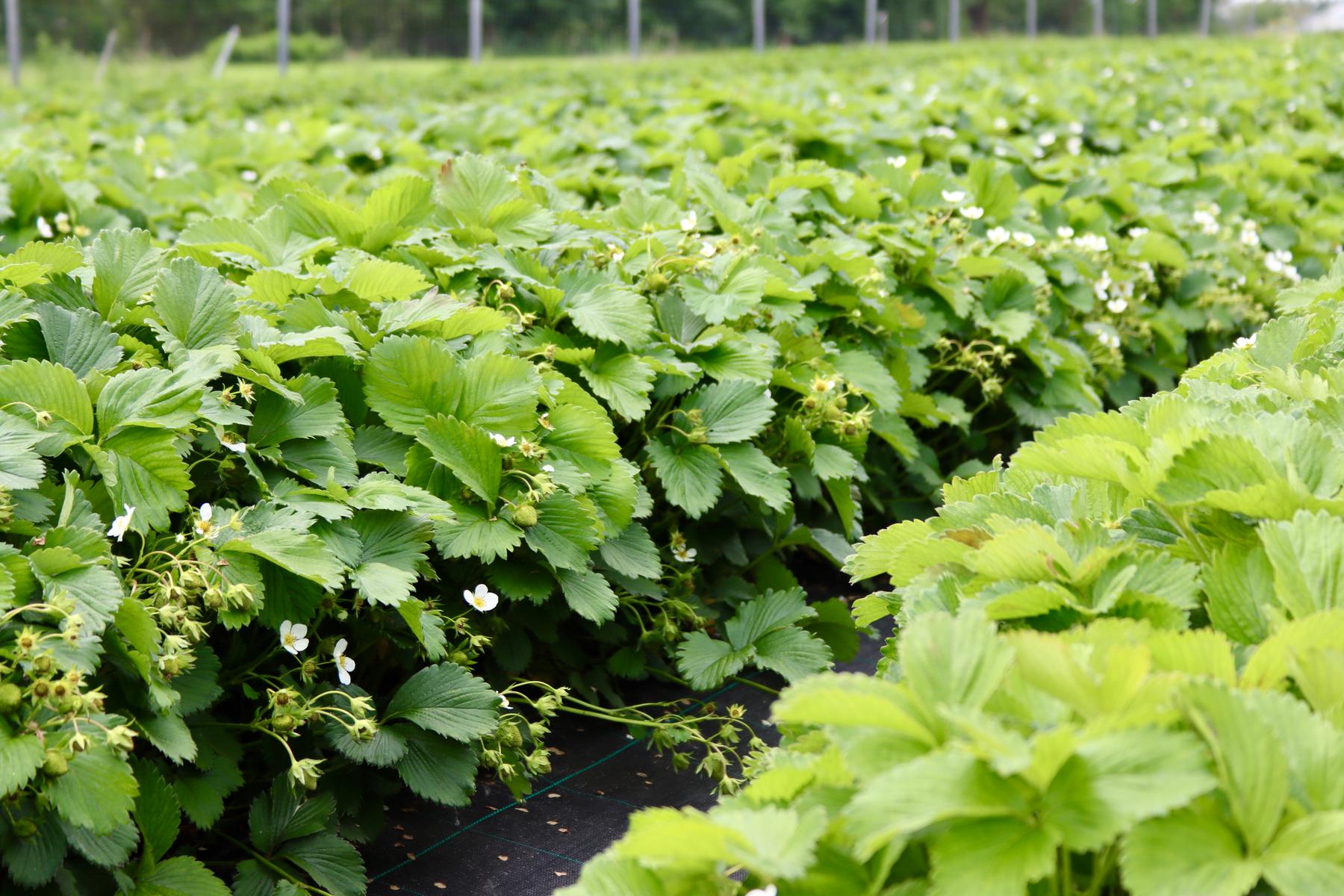Words by Louise Kunth
Continuing doesn’t mean repeating.
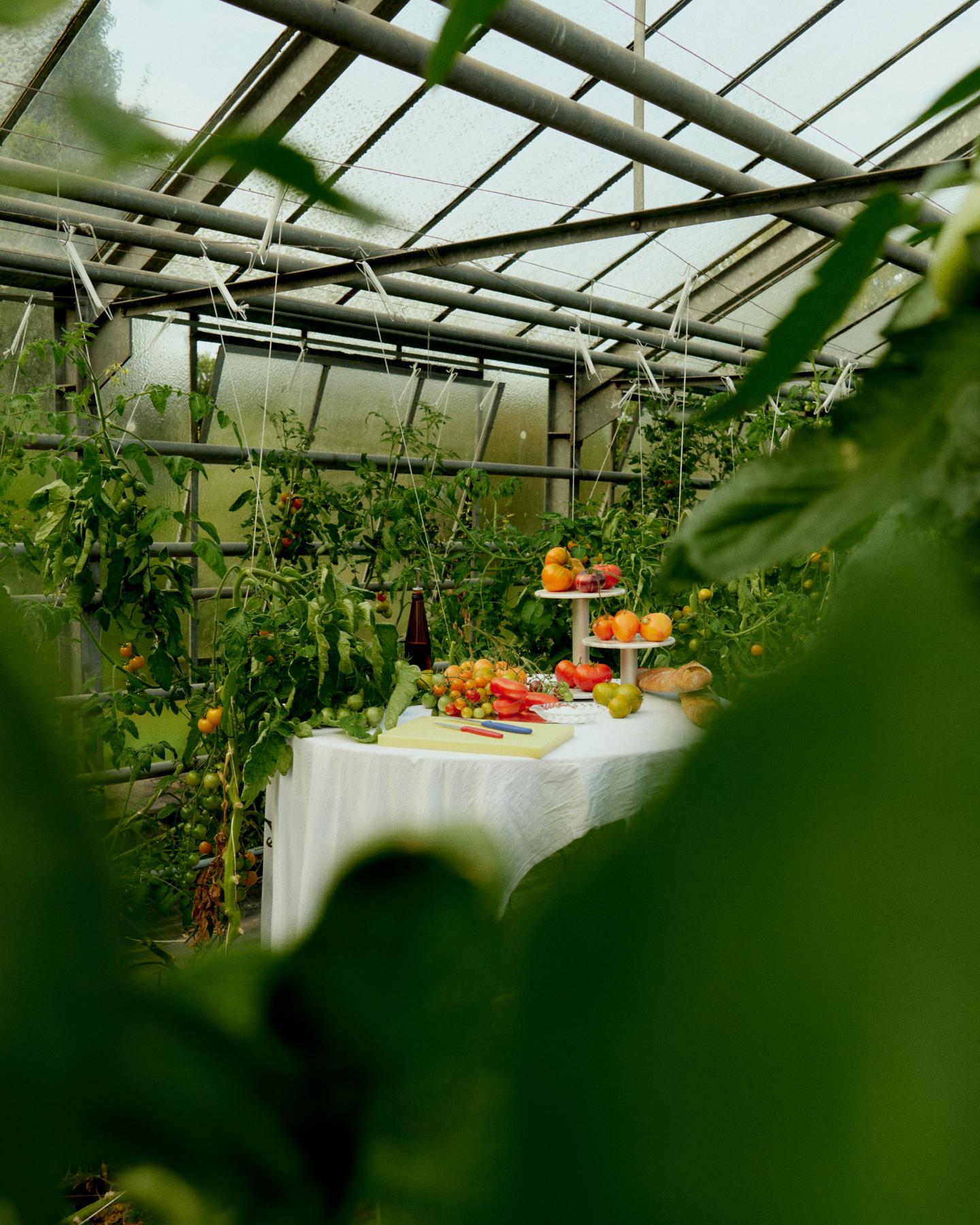
-
Intro
Sannmann is a Demeter-certified vegetable farm just outside Hamburg which is run by Alina Sanmann. I regularly spent some of the nicest summer saturdays there – picking strawberries, tomatoes and flowers, eating ice cream with the kids, drinking coffee and just enjoying time under the colourful umbrellas – just in the middle of the flower fields.
The farm covers around 55 hectares, including pasture for their herd of cattle. In summer, about 15 hectares are dedicated to vegetables – that’s roughly 20 football fields. They grow herbs, lettuce, tomatoes, peppers, cucumbers, eggplants, and zucchini. In autumn, pumpkins, kale, and beets are added. Alinas team includes 15 permanent staff members and around 10 seasonal workers.I had the pleasure to speak with Alina, who took over the farm after her father passed away and transformed it from the biodynamic place it already was to something more: a place that feeds, connects, and opens up.
© by Judith Zastrow, Smilla Mester, Alina Sannmann, Sebastian Lemme, femtastics, Marcel Frommer and area.
-
Here are my takeaways from Alina opening up the logic of farming.
-
-
-
-
Continuing doesn’t mean repeating: Taking over is one thing. Making it yours is another.
Alina grew up on the Sannmann farm, but without any pressure. Her father never made the kids help (because he had been forced into it himself) and Alina actually never dreamt of running the farm. For her, the farm was a giant playground. Wide open space, always something to explore. Her father was always there, and always working.
Later, she spent hours in her mother’s organic store, stocking shelves, watching people, learning what good food looks like.
She kept going—into cafés, hospitality jobs, and eventually a degree in nutrition science. There was no clear plan back then. Farming seemed cool, but also too intense and rigid. She visited other farms— mostly big operations with harsh schedules and mechanical routines. None of this really fit.
And still, joining her parents’ farm had never really been part of the idea. But then her father got sick and passed away. And suddenly the question was no longer whether to continue, but how now. So she stepped in because she couldn’t imagine letting the place go. And because she could see what it might become in her hands: Not a repetition, but a reinvention.
-
-
-
Build systems that support you.
The reinvention started with Alina’s decision to make it hers. She wanted to create a workplace she could actually be in, as herself. So she doesn’t run the farm like a machine, because she simply doesn’t want to work like one.
For her, the farm is not just land to be managed. It’s a place that has to breathe. A place where she can breathe, too. Where growth happens at its own pace, not for someone else’s schedule.
Her father already farmed in cycles—biodynamic, regenerative, without pesticides. But everything went to wholesalers. The rhythm was tight: fixed quantities, perfect quality, delivered exactly on time.
That logic didn’t feel right to her.
She sees the farm as a shared place of responsibility: for the land, for the people who work there (many of whom call it home), and for her family.
So she began to shift the system—away from pressure and optimization, toward more presence, more relationship.
To make that possible, she made sure the farm stands on more than one leg: different crops, different channels. Wholesale and harvest boxes, events and rental gardens, young plants, self-picking—and more ideas still taking shape.
This kind of diversification gives her something essential: safety. And freedom.
She no longer depends on a single system.And more than that: with her way of doing things, she’s opening the place up and letting people in.
-
-
-
-
-
Let people get closer. Not just to understand and value—but to reconnect.
When Alina introduced self-harvesting, it wasn’t just for efficiency (though that helped, because it meant fewer staff, simpler logistics, more direct exchange. A classic win-win.)
But it soon became something else: A form of reconnection.
People walk the fields. They pick with their own hands. They feel the weather. See what’s ripe and what’s not. It changes how they think about food, time and effort. Something shifts when you’re allowed to enter a space like this. People suddenly see the work, the care, the process behind the product.
Access alone becomes meaning. People feel more grounded, more fulfilled. The demand for that kind of experience keeps growing.For Alina, this isn’t just a trend, it’s how things used to be.
Not long ago, most people were farmers. Now it’s considered an exotic lifestyle. Alina wants to bring agriculture back into the center of society. To reconnect people with farming as something familiar – or even more – as what it actually is: The essential work of growing food for others. -
-
-
-
Sometimes, attention is more powerful than action.
Alina grew up with amazing food—so good, she didn’t realize it wasn’t normal. Vegetables with real flavor. A tomato you could pick, bite into, and trust.
“Good vegetables are the kind you can eat straight from the field—no second thoughts.”Her love for food led her to study nutrition.
But the real understanding came later on the farm. Because plants don’t lie. They just show you what they need.
Often not more action, but more attention. They need presence, timing and sometimes restraint.
The ability to just watch, wait and let things unfold.And then comes the part that’s even harder: letting go.
Because in the fields there is so much you can’t control – the weather, the pests, the pace of growth.
You learn to respond, not react. Simply to work with what is, instead of what should be. To trust the process—not because it’s romantic, but because it’s the only way.(Good vegetables aren’t flawless, they’re in balance.
Grown without shortcuts or illusions. And alive in a way you can taste—even if you don’t have the words for it.) -
-
-
-
-
Farming doesn’t have to be quiet. It can be generous. And maybe that’s true for more things than we think.
The classic image of a farmer is someone who prefers to be alone. Head down, close to the soil, focused. Alina doesn’t fit that mold. She likes people. She enjoys creating experiences. For her, farming isn’t about isolation—it’s about invitation. She hosts events, plans pop-up dinners, walking dinners, cooking classes. Hosting isn’t a sideline; it’s part of what makes the farm feel alive.
The openness. The contact. The flow of people through the place. For her, farming is a kind of care work. A rhythm of preparing, providing, making space.
And she keeps looking ahead: What else could grow here? In her mind, it’s not just a farm. It’s a future restaurant. A greenhouse turned dining room. A place where food is grown, cooked, and shared—all in one. Maybe a few guest apartments. Maybe something else entirely. Whatever it is, I’m excited to see it take shape.
-
-
-
-
-
-
